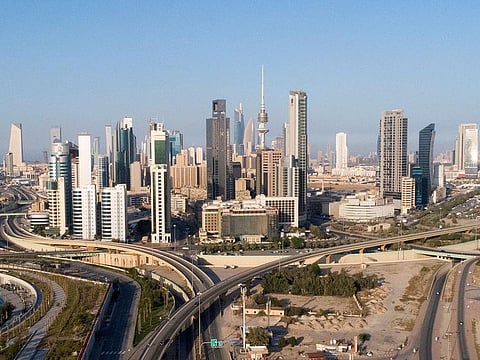Gulf economies have handle on this crisis
With oil prices inching higher, they are better placed to take on the New Year

The world is leaving behind an intensely difficult year, during which the quality of life deteriorated at all levels due to the pandemic and led to a halt in activities in an unprecedented manner. Something not quite seen during the peak of the two World Wars and the Great Depression.
Even at the height of the siege of St. Petersburg (formerly known as Leningrad) by the armed forces of Nazi Germany, the markets were open and public transport was operating at a bare minimum level.
But 2020 was exceptional even by those benchmarks.
Slow road back
Apart from spreading panic, the pandemic caused significant damages to economies, lives were lost, and tens of millions lost their jobs. Such unforeseen consequences raised questions about economic futures, particularly now with the availability of vaccines.
As for the Gulf countries, apart from the economic contraction, they endured a significant decline in oil prices, which had fallen from $50 per barrel to $16 at one point.
Two phased
As the impact was a double-whammy, the recovery phase too will be two-pronged. On the one hand, economic activities will gradually kick up a gear, while oil prices, which have stabilized at above $50, will return to pre-pandemic rates. This means growth in the GCC will exceed most countries.
While the average slowdown in 2020 was 3.5 per cent, lower than that in developed countries, the expected growth in 2021 will be 3-4 per cent - a relatively high rate that indicates the effectiveness of the way the GCC countries handled the crisis since the start.
Slow and steady
For sure, the issue of recovery will go beyond 2021, but the path to recovery can be seen now. Dealing with the repercussions of the COVID-19 crisis will not be easy, because budget deficits have exceeded 11 per cent of GDP.
However, these will be reduced by half next year, which is an acceptable level. Moreover, deficits may reduce further if oil stays at $50 plus.
The most affected sectors, which will take longer time to recover, are banking and financial services due to the difficulties with bad debts. Other affected sectors include real estate, tourism and aviation, while there will also be new - and rewarding - opportunities created in the private sector.
Expect better
In general, the GCC economies will see improvements due to higher oil prices on the one hand and from the way the repercussions of the COVID-19 crisis was dealt with.
On the health aspect, the GCC countries met the situation with great responsibility, as testified by the likes of World Health Organisation. Saudi Arabia, the UAE and Kuwait also provided significant assistance to affected countries to help them cope with the repercussions. More than 120 countries received assistance from the UAE last year.
The GCC countries pumped in nearly $400 billion to support various sectors - an approach that resulted in reducing the negative effects. They did so while ignoring the distortion and incitement campaigns practiced by many Western and regional media, and whose countries failed to rise to the same level of dealing with the crisis in a flexible way.
This calls for optimism about the ability of the GCC states to overcome the difficulties that present themselves in the new year… just as they did succeeded in overcoming last year’s crisis…
- The writer is a UAE economic expert







